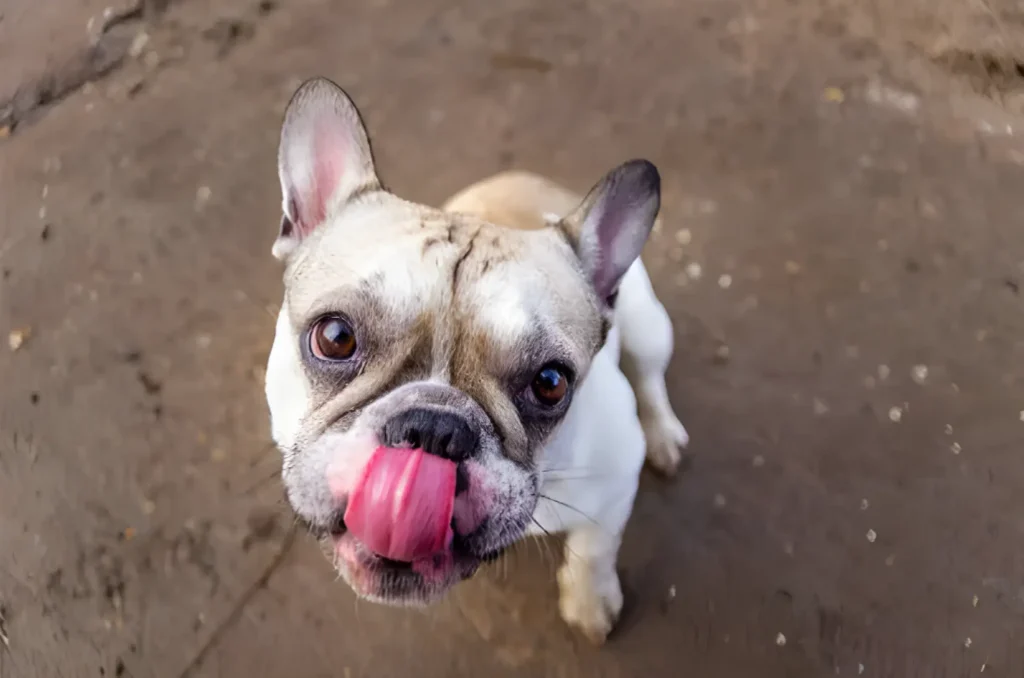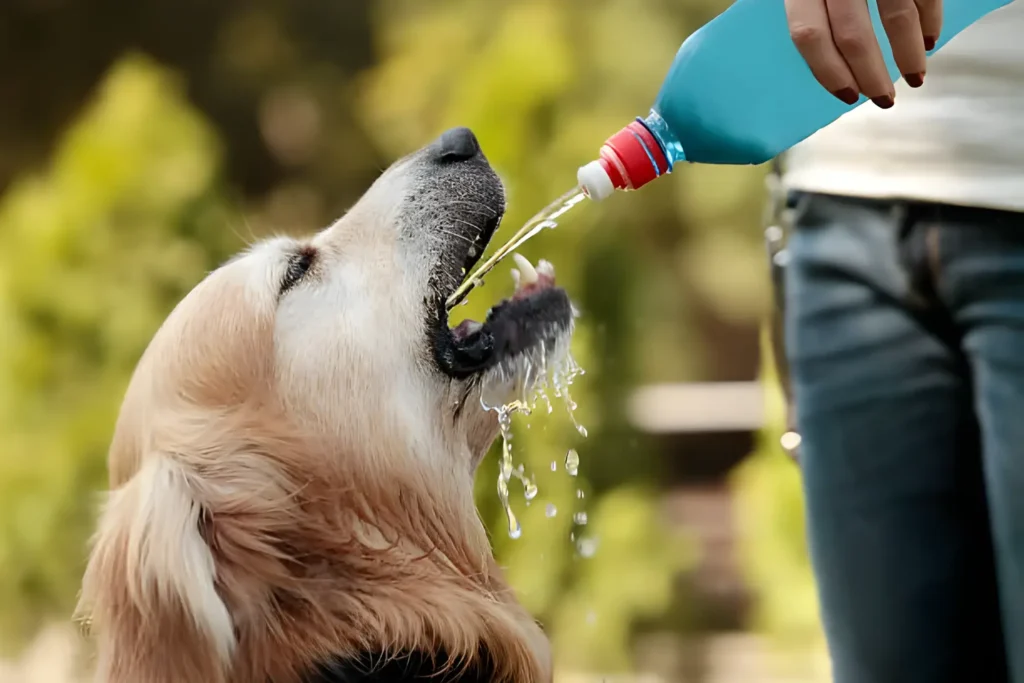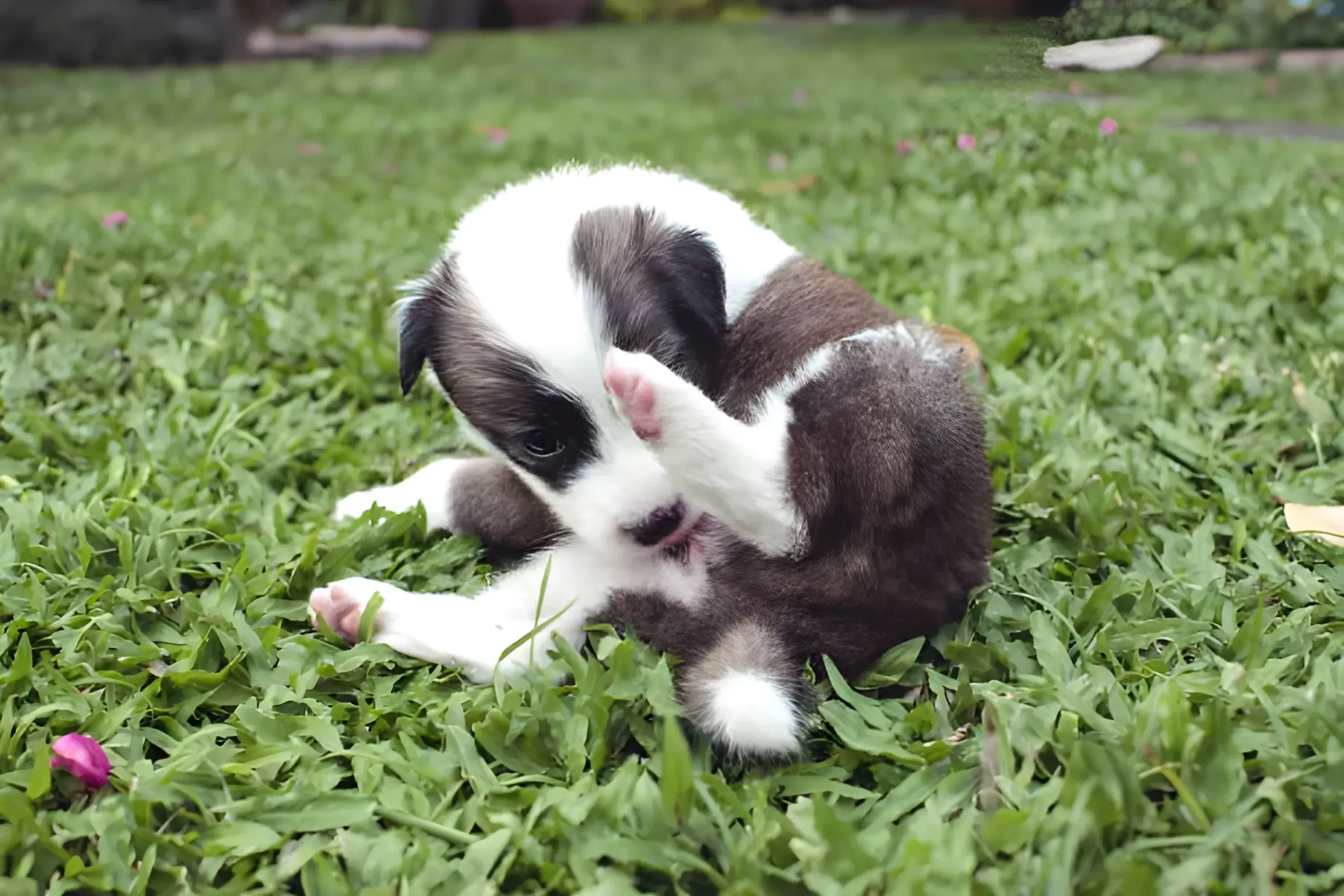Seeing your dog drink their own urine can be a bit unsettling. However, it’s important to understand that this behavior is more common than you might imagine, and usually there’s a simple reason behind it.
The most likely answer is dehydration. Dogs, like any creature, need a steady supply of fresh water. If they aren’t getting enough, they might resort to finding a liquid source wherever they can, even their own urine. Let’s dive into some other reasons why your dog might drink their urine and how to address the behavior.
Dehydration: The Most Likely Cause
Is there always fresh water? Ensure the bowl is consistently full and easily reached. Some dogs favor the moving water of a fountain.
Signs your dog may be dehydrated: Check for dry nose and gums, sunken-looking eyes, tiredness, thick saliva, and less frequent urination.
Boosting hydration: Place multiple water bowls around the house. Offer ice cubes or freeze low-sodium broth for pups who need extra encouragement. A little bit of flavorless Pedialyte in their water can sometimes help too.
Medical Considerations
While not as frequent as dehydration, certain health conditions can make dogs thirstier and prone to drinking their urine. A vet checkup is important to rule out issues like:
Urinary Tract Infections (UTIs): These often cause discomfort, frequent urination, and the urge to drink urine.
Kidney/Liver Disease: Problems with these organs can throw off the body’s water balance.
Diabetes: Dogs with diabetes experience intense thirst and increased urination.
Cushing’s Disease: This hormonal disorder also causes excessive thirst and urination.
Behavioral Reasons

Instinctive behavior: Puppies may explore the world through taste, including tasting their urine. This usually fades as they mature.
Cleaning up: Some dogs might feel a need to clean their ‘den’ after an indoor accident.
Anxiety or boredom: These can lead to unusual behaviors, including drinking urine.
When a Vet Visit is Essential
Pay close attention to changes in how much your dog drinks or urinates, alongside any signs of tiredness or changes in appetite. Red flags that warrant a vet visit include:
Big changes in thirst and urination: Is your dog drinking much more or much less than normal? Are they urinating way more often, or hardly at all?
Other concerning symptoms: Drinking urine alongside vomiting, diarrhea, major loss of appetite, tiredness, or unusual weakness needs immediate vet attention.
Issues during urination: Does it seem difficult or painful for your dog to urinate? Is there blood present? These could signal infections, stones, or other problems.
Don’t Delay: Early diagnosis is key for any health issues. If you’re worried alongside the urine drinking, call your vet right away.
Myths and Misconceptions
“It means my dog has a terrible disease”: While it can sometimes be associated with medical problems, dehydration is much more likely. Don’t panic, but do take steps to investigate the cause.
“My dog is disgusting”: It’s natural to find the behavior off-putting, but dogs don’t have our sense of hygiene. They may simply be thirsty or following instincts.
How to Stop Your Dog from Drinking Urine

Fresh water is key: This is the most important step. Make sure there’s always a supply available.
Rule out medical causes: A vet visit ensures there’s no underlying health problem, especially if the behavior is new or accompanied by other symptoms.
More potty breaks: Frequent trips outside prevent accidents and remove the chance to drink their urine.
Distraction works wonders: If you catch them doing it, offer a toy or a quick play session to redirect their attention.
Clean up quickly: Use a cleaner made for pet messes to reduce the urge to return to the spot.
Tackling anxiety: If anxiety seems to be a factor, provide mental stimulation and consult a behaviorist for severe cases.
Alternative Solutions for Increased Hydration
Sometimes, even with water available, dogs just won’t drink enough. If that sounds familiar, try these ideas:
Water fountains: The running water can be very appealing to some pups.
A little flavor boost: Add a tiny splash of low-sodium broth (vegetable is safe) or flavorless Pedialyte to their water (changing it frequently).
Frozen treats: Freeze broth or flavored water in ice cube trays or Kong-type toys for a fun hydration challenge.
Wet food: Switching to, or adding some wet food to your dog’s diet offers significant moisture.
Water-rich snacks: Safe fruits and vegetables like watermelon, cucumbers, or carrots offer a tasty way to boost hydration.
Conclusion
While startling to see, your dog drinking their own urine is likely a sign of a solvable problem. Prioritize hydration, consider any potential medical causes, and manage the behavior with patience. If you’re concerned, your vet is always there to help!
The photo featured below the post headline is Credit: Michael Edwards/istockphoto
I hope you find this post helpful and informative. If Yes’ feel free to share it with your friends!
Frequently Asked Question
Is it harmful for my dog to drink urine?
Generally, small amounts are unlikely to be harmful, but it’s not hygienic and can perpetuate the behavior. Prioritizing hydration is key.
Should I scold my dog for drinking urine?
No. They won’t understand, and it may create more anxiety. Focus on addressing the underlying reasons for the behavior.
My dog drinks urine outside on walks, is this normal?
This can be a combination of curiosity and limited water access during walks. Carry water with you, offer frequent water breaks, and try to distract your dog away from other animals’ urine spots.
My dog drinks urine and seems lethargic, could this be serious?
Lethargy alongside urine drinking is a red flag. This combination could indicate dehydration, a urinary tract infection, kidney issues, or other problems. Contact your vet right away.
Do dogs drink their own urine at night?
They might, especially if fresh water isn’t readily available after bedtime. Ensure a water bowl is accessible throughout the night.
How can I tell if my dog is dehydrated?
Look for signs like dry nose and gums, sunken eyes, lethargy, decreased skin elasticity, and thick saliva.
My puppy drinks urine – is that normal?
Puppies explore the world through taste, so it can be a phase. Ensure plenty of fresh water, supervise potty breaks to prevent accidents, and gently discourage the behavior as they age.
My dog drinks other dogs’ urine, is this okay?
While not uncommon, it’s still unsanitary and can spread germs. Try to prevent this behavior through distraction and by giving your dog plenty of fresh water on walks.
Does drinking urine mean my dog has a behavioral problem?
Sometimes, especially if accompanied by anxiety signs. However, rule out thirst and medical issues first.
My dog suddenly started drinking urine, should I be worried?
A sudden change warrants a vet visit, especially if there are other symptoms. It could be as simple as needing more water, or it could signal a medical problem.
How much water should my dog drink daily?
This varies by size and activity level, but a general guideline is roughly an ounce of water per pound of body weight each day.

